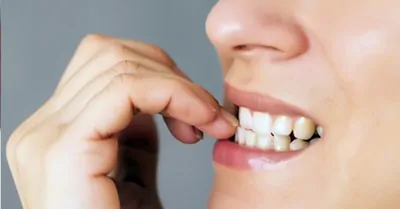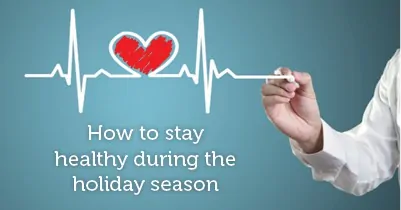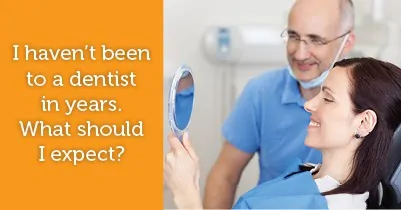Blog
4 Tips to Keep Your Pet’s Mouth Healthy

- Choose the right tools
When you decide to start brushing your animal’s teeth, it’s important to choose the proper brush. There are canine-specific toothbrushes that you can buy, or a clean piece of gauze wrapped around a finger will work just fine. When it comes to the toothpaste, ask your vet what’s best. Never use human toothpaste on an animal as it could cause stomach problems.
- Use the right technique
Brushing animals’ teeth is very similar to brushing your own. Make sure to hold the brush or your gauzed-wrapped finger at a 45 degree angle and gently rub in small circles. The cheek side of the teeth often accumulates the most tartar, so try to pay extra attention in that area. Brushing should occur two or three times a week.
- Know the signs of disease
Some signs of an issue with your pet’s oral health could include:
- Bad breath
- Excessive drooling
- Swollen gums
- Loose teeth
If you notice any of these symptoms, schedule an appointment with your vet.
- Select a healthy diet
Just like humans, your pet’s diet can go a long way toward keeping teeth healthy. There’s specially formulated food your vet can recommend that will help control plaque and tartar formation. When it comes to snacks, avoid table scraps and choose healthy dog treats instead.
Make sure to keep your pet’s smile in its best shape by following the tips above and visiting the vet regularly. To keep your smile healthy, maintain regular appointments at my Douglasville dental office and make sure to brush and floss daily.
Accepting patients from Douglasville, Lithia Springs, Villa Rica, and surrounding areas.
Stop Missing Work Because of Your Teeth

Oftentimes we avoid the dentist if we don’t have a problem. But that itself is a problem. Prevention is key! If we wait until we have signs of a dental issue, like pain, bleeding gums, or even a toothache, we’ve already waited too long. There’s a common myth that says you’d know it if you had a dental concern, but the truth is, that’s just not the case.
Many dental problems have no warning signs. Cavities, for example, don’t hurt when they’re shallow, new, and haven’t reached the nerves. If caught early, treatment is simple. If left to advance, cavities can cause pain and could need more in-depth treatment.
On a more serious note, oral cancer and gum disease may have little-to-no signs in the early stages. As they progress, however, they become extremely dangerous not only for your smile, but for your entire body. This is why we emphasize catching problems as early as possible. When detected in the first stages, both oral cancer and gum disease can be treated. Like anything else, if they’re not caught and are left alone, oral cancer becomes really serious and gum disease could lead to whole-health problems like heart disease, stroke, and even difficulty managing diabetes.
Since it is so important to catch serious dental problems as soon as they appear, even if you can’t feel them, it makes keeping regularly scheduled appointments with your Douglasville dentist extremely important. We traditionally recommend appointments at least every six months, sometimes even sooner. It’s not only important to keep these appointments to keep your mouth healthy, they can help catch any lingering problems before they become serious issues.
As always, appointments with us are important, but equally so is a healthy at-home routine. This means brushing at least twice a day and flossing at least once a day (yes, flossing is that important).
If it’s been awhile since you’ve been to a dentist, or if you’re due for a visit, give my dental office in Douglasville a call. We’re always happy to see you and will work with you to get your smile healthy so you can get back to enjoying your deserved time off.
Serving patients from Douglasville, Lithia Spring, Villa Rica, and neighboring areas.
Spit It Out! Top Juicy Facts About Spit
We don’t literally mean spit it out, whatever it may be. In fact, it’s never really polite to spit in public (or while reading blogs online). What we really mean is that despite how gross spit may seem, it’s actually some pretty cool stuff. All of us at my dental office in Douglasville want to ‘spit out’ some of the top fun facts we know about saliva.
Be The Match
Many people every year are diagnosed with a blood cancer. A lot of times, it’s a child. Your spit could actually help. BeTheMatch.org encourages people to register to be a bone marrow donor by simply swabbing your cheek. A bone marrow match can’t always be found for someone with blood cancer, so this organization helps a lot to increase the number of possible donors. Your spit could literally help save a life.
“I Produce How Much Spit a Day? Gross!”
The average person produces about one or two quarts of spit every, single day. That’s a lot of spit! And while your initial reaction may be, “Ewww!” or “Gross!,” let’s talk about why this is a good thing.
Spit is crucial for a healthy and decay-free mouth. Saliva helps rinse away any lingering food particles, neutralizes acids, and keeps the tooth enamel strong. It also helps to preserve the soft and hard tissues in the mouth. When there isn’t enough spit flowing in the mouth, decay and other oral infections can occur. Trust us, all that spit is actually keeping you healthy!
CSI: Saliva
Research conducted at UCLA has led to even more advancements in our ability to put an age to criminals by using, you guessed it, spit. Our saliva contains DNA, and over time, the DNA in the saliva changes. Essentially, this means that science and spit can help predict a person’s age to within five years. Why five years? Because the DNA breakdown isn’t necessarily an indicator of true age, but of what’s called biological age.
This breakthrough could help doctors too. If they know your biological age, they’ll have a better idea of how old you really are and can better decide what’s the most important treatment or what you’re more at risk for.
Yes, spit can be gross, but it can also be extremely helpful at keeping your mouth healthy and cavity free. Another thing that helps with both? Regular visits to my Douglasville dental office. If it’s been awhile since you’ve seen a dentist, give us call! We welcome you, and your spit (it is part of what we do), any time!
Serving patients from Douglasville, Lithia Springs, Villa Ricca, and surrounding areas.
Seniors and Oral Health
A common misconception is that as we age, we must lose our natural teeth. That’s not necessarily always true. With a lifetime of proper oral hygiene and regular dental visits to my Douglasville dental office, it’s possible to keep your teeth for your whole life. However dental care for seniors becomes particularly important.
Gum Disease
People of all ages are at risk for developing gum disease; however, by age 65, 1 in every 4 will have this dangerous disease. While it is treatable, it’s important to catch it early before it has a chance to affect the rest of the body. This makes regular visits to your dentist in Douglasville extremely important, especially for our senior citizens.
Gum disease may lead to some scary and unpleasant whole-body health problems and even more issues in the mouth. According to the American Academy of Periodontology, 20-30 percent of adults have gum disease severe enough to lose their teeth. And that’s not all. Gum disease has been linked to heart disease, diabetes, and stroke. To help keep your gums safe, avoid the following:
- Smoking
- Poor diet
- Inadequate oral hygiene
Dry Mouth
As we age, the number of medications we take tends to increase. While this change is good for helping ease any problems you may have, it can be detrimental to your oral health. Many medications, both prescription and over-the-counter, may cause dry mouth. Dry mouth is an uncomfortable and dangerous problem as it greatly increases the chance of decay, gum disease, and other oral infections.
Whole Body
Your mouth is directly linked with the rest of your body. If you want to keep your body in tip-top shape, you need to take care of your mouth. Additionally, it’s incredibly important to let your dentist in Douglasville know of any health conditions you may have, including, but not limited to, diabetes, cancer, and heart disease, as these can all affect your oral health and will dictate the path of treatment most appropriate to you.
We always encourage you to maintain proper oral hygiene and keep up with regular dental appointments for optimal overall health, especially as you age. Seniors are important individuals to all of us here at my dental office in Douglasville, and we love to care for some of the most special smiles.
Serving patients from Douglasville, Lithia Springs, Villa Ricca, and surrounding areas.
5 Bad Habits That are Harming Your Teeth

- Teeth Are Not Tools. No matter how easy it may seem to simply use your teeth to open that bag of chips, remove that tag from new clothing, or open that jar of nail polish, it’s definitely not worth it! Using teeth as tools to open any pesky package can result in serious damage like chipped teeth and broken restorations. Saving a few seconds by using teeth instead of grabbing the proper tool just isn’t worth it.
- Brushing Softly is Best. There’s no need to vigorously scrub your teeth. In fact, doing so can create serious damage. Hard bristles and rough brushing can contribute to sensitivity, worn down enamel, and irritated gums. Instead, choose a soft bristled toothbrush and gently brush teeth at a 45 degree angle for best results.
- Cool it on Ice Crunching. Ice is one of teeth’s worst enemies. It’s not only super hard, it’s also super cold; two things that don’t go well for teeth. Crunching on ice is a great way to fracture teeth and get tiny cracks in them. Down the road, these tiny cracks lead to much bigger problems.
- Keep Fingers Away! Biting nails is another dental habit that leads to tooth damage, among other things. Your fingernails are dirty and biting them allows all the germs hiding underneath to enter the body (yuck!). Also, fingernails are hard, really hard, and chronic biting can cause teeth to shift, break, or crack.
- And Pens Too! Like nail biting, it’s a common habit to park a pen or pencil between your teeth at meetings or when deep in thought. This, too, places a lot of pressure on teeth, causing them to shift, crack, or damaging dental restorations.
All habits are hard to break, and dental habits are no exception. So try your best to catch yourself and work on fixing them. Need some tips for helpful ways to break a habit? Talk to any of us at my Douglasville dental office!
Accepting patients from Douglasville, Lithia Springs, Villa Ricca, and surrounding areas.
How Your Oral Health is Linked with Sunshine

The Sun Will Come Out, Tomorrow (or we hope so!)
The sun is a powerful thing. It not only keeps our planet from going into a deep freeze, it also provides quite a few health benefits. Getting a daily dose of sunshine can boost your mood, improve your immune system, and kickstart vitamin D production.
So What’s So Great About Vitamin D?
Since vitamin D helps to regulate your immune system, it is your first line of defense. Studies have shown that vitamin D can help your pancreas make insulin, lower blood pressure, and aid in the absorption of calcium. Since calcium makes our teeth and bones super strong, a healthy supply of vitamin D is extremely important for a healthy mouth.
No Sun? Eat Your Vitamin D!
The sun isn’t the only source of this nutrient. You can also increase your intake of vitamin D by eating foods that contain a lot of it such as:
- Eggs
- Fatty fish like Salmon
- Milk
- Supplements
No matter how, make sure you’re getting enough vitamin D. Research shows that a lack of vitamin D can lead to osteoporosis, increased risk for type 1 diabetes, and even serious cancers of the breast, colon, or prostate.
Make sure you’re doing everything you can to keep your smile healthy, including eating a healthy, well balanced diet and visiting my Douglasville dental office regularly.
Accepting patients from Douglasville, Lithia Springs, Villa Ricca, and surrounding areas.
Tooth Sensitivity: What to do When Both Heat & Cold Bother You
Cold drinks, hot soup, and a whole lot of pain. If you’re struggling with eating what you want without pain, especially if it’s common with hot or cold foods, you’re probably suffering from sensitive teeth. At my Douglasville dental office, we hear this often and we’d like to help.
The Why
There are many reasons your teeth could be susceptible to pain while eating or drinking something hot or cold. One of the most common is the tooth’s root structure has become exposed. This anatomy of the tooth contains a lot of nerves, and when it’s open to contact with elements, the pain can be extreme. The root structures typically become exposed through gum recession or eroded enamel, both of which can be caused by grinding, a lot of acidic drinks, and even aggressive brushing.
How to Fix It
- Toothpaste Choice. By simply changing your toothpaste, you can help ease pain caused by sensitivity. If you have sensitive teeth, it’s wise to avoid toothpastes that contain sodium pyrophosphate, which is found found many whitening and tartar-control pastes. Instead, choose a toothpaste that designed specially for sensitive teeth and use it regularly.
- Softer is Better. When selecting a toothbrush, make sure you choose one that has soft bristles. Hard-bristled brushes can contribute to wear and tear on the tooth’s enamel and put you at increased risk for sensitivity. Additionally, brushing too hard can lead to similar results. If your brush’s bristles are sporadically angled, chances are you’re brushing too hard.
- Easy on the Soda. And acidic juice and food. The more acidic the food or drink, the more damage to your tooth enamel and the more likely you’ll suffer from sensitivity pain. Choosing water over soda is always wise.
If sensitive teeth are keeping you from enjoying the foods and drinks you love and you can’t seem to ease the pain, call my dental office in Douglasville. We’ll work with you to determine what may be causing your sensitivity and talk about proper treatments to get you back to eating and drinking without pain. Some common treatments may include application of a desensitizing agent, bonding, or sometimes a root canal.
Accepting patients from Douglasville, Lithia Springs, Villa Ricca, and neighboring areas.
“Why is Biting My Nails so Bad?”

- Chips. We’re not talking about the salty, crunchy kind. We’re referring to the tooth enamel damage caused by nail biting. Fingernails are hard, and gnawing on them can lead to chips or cracks in the teeth.
- Wear and Tear. Like the rest of your body, your teeth need to take periodic breaks. If you’re constantly putting stress on them by nail biting, teeth may begin to wear down and could become uneven.
- Jaw Issues. Biting your nails may lead to TMJ Disorder, which causes painful headaches, locking or popping of the jaw, or jaw pain. Because of the abnormal way your jaw needs to move around to nibble off a nail, it may throw the alignment out of whack, leading to TMJ Disorders.
- Back to the Grind. The Academy of General Dentistry (AGD) states that nail biters may be putting themselves at greater risk for bruxism, or unintentional grinding or clenching of teeth. Grinding and clenching can lead their own host of problems including jaw issues, headaches, and tooth damage.
- Dental Bills. Since there is such a strong correlation between nail biting and dental problems, it’s not surprising that those who are chronic nail biters end up having higher dental bills than non-biters. According to the AGD, people who bite their nails end up paying an additional $4,000 in dental bills throughout their lifetime.
If you’ve been biting your nails and can’t seem to stop, give my dental office in Douglasville a call. We can talk about ways others have successfully broken the habit, check your mouth of any potential side effects, and work with you to get your mouth healthy.
Welcoming patients from Douglasville, Lithia Springs, Villa Ricca, and neighboring areas.
Top Tips for a Healthy Holiday Season

Be Stress Free
Over the holidays, life seems to become so incredibly busy, it’s like there’s never a chance to breathe, let alone enjoy it. Try breaking the cycle of constantly being stressed by following these tips.
- Don’t overcommit. If you’re inundated with piles of invitations to holiday parties, don’t feel obligated to accept them all. Overcommitment to more events than you can handle can lead to loss of sleep and an increased risk of getting sick. Politely pass on some of those parties and stay in to relax instead.
- Stay within budget. Start your holidays by setting a budget, then stay within it. Managing the amount of money you’re comfortable spending on gifts, food, and travel can keep your stress levels low and give you one less thing to worry about.
Eat, Drink, and Be Merry – Just Not Too Much
One of the best parts of the holidays is the variety of food and drinks available at every turn. While we’d never tell to you skip out on enjoying a holiday feast, your dentist in Douglasville will encourage you to monitor your intake of food and alcohol. Overeating can lead to an upset stomach, so watch how much you consume. The same thing applies to alcohol. If you’re of age, partaking a glass of wine with dinner or a dessert of eggnog is absolutely acceptable, just don’t overdo it. Alternate every alcoholic drink with a glass of water, and try to limit yourself to two adult beverages per party. Nothing compromises your immune system or makes you feel sicker than a hangover that belongs on the naughty list.
Wash Your Hands Often
During the holidays, we interact with more people, visit more houses, and are presented with more opportunities to swap germs. This makes washing your hands well and often really important. Scrub with warm water and soap for at least 20 seconds to rinse away harmful germs that can make you sick and put a damper on your holiday.
Everyone at my dental office in Douglasville wishes you and your family a safe and happy holiday season. Following these tips can help make it a healthy one too.
Welcoming patients from Douglasville, Lithia Springs, Villa Ricca, and surrounding areas.
What to Expect if You Haven’t Been to the Dentist in Awhile

A Lecture-Free Zone
One of the main fears patients have when they’re getting ready to come back is fear of a lecture. When you visit your dentist in Douglasville, we don’t want you to be afraid of getting chastised. Our philosophy doesn’t include making our patients feel guilty, but rather we talk with you about your concerns and work together to ease them. With us, you’re never in trouble and we’re always here to help.
A Longer Visit
Your first visit after a hiatus will typically warrant a longer visit. This isn’t to scare you but because we like to spend time getting to know our patients personally and familiarizing ourselves with their mouths. We’ll also perform a thorough evaluation that will most likely include x-rays, a comprehensive exam, and cleaning. We’ll move at your pace and constantly ensure that you’re at ease.
Cavities
If it’s a been a few years since you’ve seen a dentist, there is a good chance that you have some decay and cavities. However, they’re nothing to fear. Most people, even those who do see the dentist every six months, get several cavities throughout their lifetime. But thanks to improvements in dental technology, treatment is easier, less painful, and faster than ever before. Getting a cavity filled is a much better option than leaving it untreated as a cavity that is left to fester can lead to more serious problems.
Whether it’s been a few months, years, or decades since you last visited the dentist, we’re here to welcome you to my dental office in Douglasville. Our goal is not only to get your mouth healthy, but to make sure you’re comfortable and that you’re an active part of your health care team. We welcome you to talk to us about your concerns so we can help ease your worries and get your smile back to health, beauty, and strength.
Welcoming patients from Douglasville, Lithia Springs, Villa Ricca, and surrounding areas.



